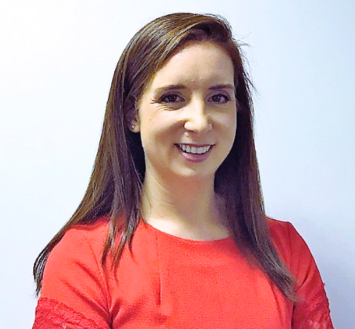
Our MSc in International Management programme is specifically designed for business graduates who wish to pursue an international career or work in organisations within global markets. Dr Sinéad Monaghan, Director of the MSc in International Management, explains how students gain the knowledge and practical experience needed to become international leaders, most especially in a hybrid/remote working world.
How does the programme provide students with real world management experience?
Every year is different in its orientation, but we try to invite guest speakers from industry into the classroom to enrich the academic and theoretical content we share. This year, we’ve had speakers from Google and Qualtrics, as well as some other international firms based in Dublin's 'Silicon Docks'. The International Consultancy Project requires students to consult on a live strategic challenge facing a firm, and the International Residency Week to Spain provides an example of a short-term expatriate assignment for a global manager. In-class experiences and case studies require students to role-model managers, and the content is regularly updated to ensure that students are discussing and dealing with current topics facing international managers.
How will students benefit from the International Consultancy Project (ICP)?
The ICP is a capstone module, where students are encouraged to integrate their learning from the programme and direct that into a strategic consultancy project with an international company to provide recommendations for genuine organisational application. Working in culturally diverse groups, the students will work with an assigned mentor, who has rich industry experience in the area, to ensure they can analyse the current organisational functioning, diagnose the strategic challenge, conduct market or product-based analysis, apply strategic models and frameworks to help generate company-specific solutions. The module includes a Power Pitch presentation to the company at the end of the module, and an individual reflective essay to ensure the student has sufficient learning.
Tell us a little bit about the itinerary of the International Residency Week in Spain and the insights students gain through this experience?
The itinerary of the trip to Spain consists of a mix of business, industry, economic and cultural experiences. It is provided via masterclasses from local academics, who are experts in Spanish economics, politics, entrepreneurship, as well as via presentations from local business practitioners. Outside the classroom there are industry visits to the Inditex Zara complex, Estrella Galicia factory, port facilities and a cultural tour of the heritage city of Santiago de Compostela. The formal programme is complimented by social events, local outdoor activities, and experience of Spanish culinary and winery treats.
How does the IM curriculum prepare students to lead, motivate and manage multi-cultural teams in a sustainable and net carbon neutral future?
The very nature of the programme, with such rich diversity of students, faculty, and modules, provides a microcosm of international management. All our modules include group work, both in-class exercises and assignments, to ensure that students develop experience with coordinating, managing and performing within multi-cultural teams.
In line with the Trinity Business School Strategy of 'Transforming Business for Good', we ensure that all our modules incorporate aspects of environmental, social, and governance (ESG) awareness. We also have a specific dedicated module to Ethical Business, and in the coming year, we will offer an elective module on Global Social Entrepreneurship.
How has the programme adapted/evolved to train managers in a post pandemic world where both hybrid and internationally based teams are on the rise?
The MSc in International Management is one of the long-standing MSc programmes in Trinity College Dublin and has witnessed significant changes over the last 11 years.
We encourage students to work in groups, adopting hybrid modes of engagement, we welcome speakers from industry to share their experience of how work has changed, and we also integrate the most recent research on the impact of Covid-19 on international business, global strategy, and management practices. The diversity of the class, in terms of country of origin, educational background and experience, is also something we actively integrate into the programme. We currently have students from 19 different nationalities, and so group work and in-class exercises foster the cultural differences of our students and encourage students to share experiences to enhance learning.


